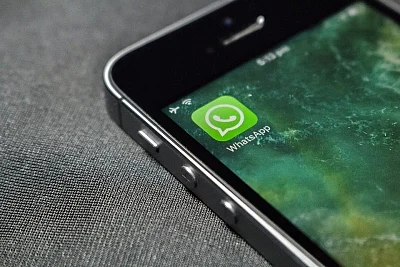Instant messaging platform WhatsApp’s controversial privacy policy updates could lead to excessive data collection and ‘stalking’ of its users, India’s anti-trust and fair trade regulator Competition Commission of India (CCI) told the Delhi High Court on Tuesday, 13 April 2021.
Earlier this week, CCI ordered an investigation into WhatsApp’s proposed privacy policy changes, which were believed to read chats and calls of its users. After which, the Facebook-owned firm challenged the CCI’s decision before the Delhi High Court.
The hearing was commenced before Justice Navin Chawla by senior advocate Harish Salve and Mukul Rohatgi, who challenged the CCI’s 24 March order directing a probe into the new privacy policy. The Delhi HC heard the arguments of both sides and the order was reserved.
‘Incompetent & Misconceived’
Senior Advocate Aman Lekhi, representing CCI, said that the matter was not about privacy but about access to data. He raised his concerns about WhatsApp’s privacy policy concerns, which will record sensitive information, such as “who is calling whom, through which device, when and for what purpose, customer profiling and consumer preference will be monetized for targeted advertising, etc”. All this amounts to ‘stalking’.
Facebook Equally Responsible
Rohtagi, who appeared for Facebook, claimed that WhatsApp’s policy is not Facebook’s policy. “I cannot be added as a party to be embroiled in litigation. It is nobody's case that it is a joint policy,” he said.
Responding to this, Lekhi (representing CCI) said that this issue was completely competition-based. WhatsApp’s new privacy policy is designed to target consumer behaviour and preferences which will be shared to its parent company Facebook.
“Facebook owns WhatsApp. Is WhatsApp is going to share its data with Signal or Telegram? No because they are competing apps,” he added.
Privacy Is a Constitutional Matter: Salve
Challenging CCI’s order, Salve said that WhatsApp cannot ‘see’ any user conversation. All conversations are protected by end-to-end encryption.
“I'm a user. It's my phone number. I send hundreds of messages. It is data generated within the system. That is what is shared. We have drifted very far from what is a competition matter. Personal data and privacy is primarily a constitutional virtue. I'm using data available in my own system,” he said
WhatsApp does not retain any messages, Salve further explained. “They are deleted from our servers after they are delivered,” he added.
(At The Quint, we question everything. Play an active role in shaping our journalism by becoming a member today.)
